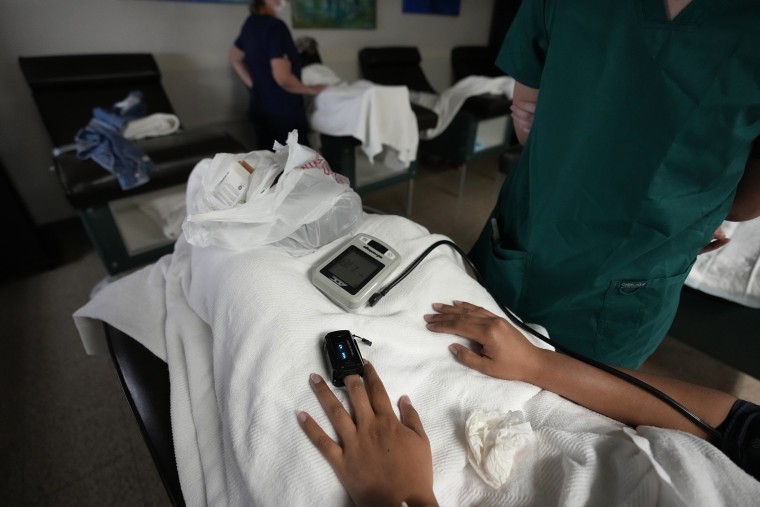A bill advanced Wednesday by Louisiana legislators would classify abortion as a homicide, potentially allowing authorities to charge women and girls with murder and criminalize in vitro fertilization, critics said.
The bill, dubbed the Abolition of Abortion in Louisiana Act, passed 7-2 out of a state House subcommittee two days after Politico published a leaked Supreme Court draft opinion suggesting that the court is poised to overturn Roe v. Wade.
The bill will now move to a full House vote. The legislation would still need support from the Senate and the governor before it could become law.
Louisiana state Rep. Danny McCormick speaks to protesters outside the State Capitol in Baton Rouge on April 25, 2020.Chris Graythen / Getty Images file
Speaking at a hearing Wednesday, the bill’s sponsor, Danny McCormick, compared the move to flout federal laws protecting abortion to the state’s approval of medical marijuana.
“If more than 15 states can defy the federal government, we can do it to save the lives of innocent babies,” he said. “We cannot wait for the Supreme Court to confirm that innocent babies have the right to life.”
“The taking of a life is murder, and it is illegal,” he added.
The bill’s text, which says the legislation aims to “ensure the right to life and equal protection of the laws to all unborn children from the moment of fertilization,” it instructs the state to disregard federal abortion rulings, including Roe v. Wade and Planned Parenthood v. Casey.
 A medical student, right, and a nurse, rear, monitor women as they rest before and after getting abortions at Hope Medical Group for Women in Shreveport, La., on Oct. 9.Rebecca Blackwell / AP file
A medical student, right, and a nurse, rear, monitor women as they rest before and after getting abortions at Hope Medical Group for Women in Shreveport, La., on Oct. 9.Rebecca Blackwell / AP file
Ellie Schilling, a Louisiana lawyer who represents reproductive health care providers, said at the hearing that the bill would amend state law to allow authorities to charge someone who is pregnant with homicide or criminal battery “at any stage of gestation,” according to Reuters.
The American Civil Liberties Union of Louisiana called the bill “blatantly unconstitutional” and said it would allow authorities to bring murder charges against people who get abortions or those who assist them.
Chris Kaiser, the group’s advocacy director, said the bill could criminalize in vitro fertilization and various forms of birth control by defining a fertilized egg before implantation as a person, according to Reuters.
McCormick did not comment on the possibility of criminalizing IVF during Wednesday’s hearing. His office did not immediately respond to a request for comment.

